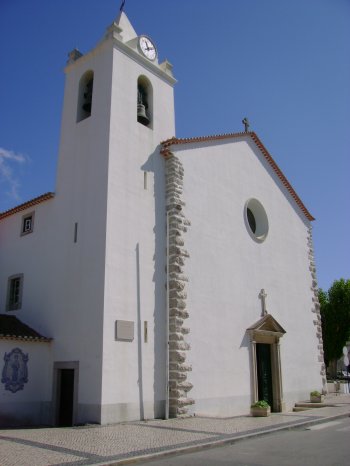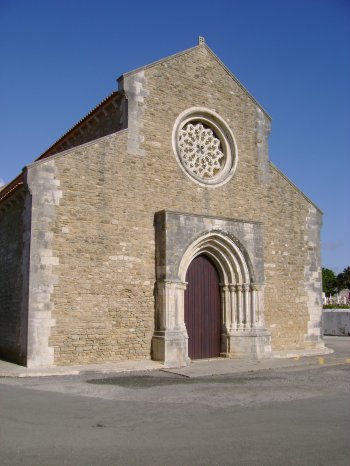Explore the best places
Heritage in Portugal
Convento de Santo António
- heritage
Praça Coronel António Maria Baptista
2530-125, Lourinhã
Classification as National Monument encompasses the former convent of Santo António da Lourinhã, including the Church of Saint Anthony, also known as Igreja do Convento de Santo António da Lourinhã and Church of our Lady of the Annunciation. Monument of Mannerist style, Baroque, Rococo and neoclassic. Mostly, the decoration shows Baroque inspiration, excepting the altarpieces that are neoclassicals.

Igreja de Santa Maria do Castelo
- heritage
Rua Doutor Adriano Franco, 69
2530, Lourinhã
This temple has a gothic construction in which the decorative program overcomes the church structure. On the main façade it opens up a doorway topped by a rose window. The inside has three naves; it presents eight arches supported by columns with capitals ornate with fitomorphic motifs. It is worthy to mention the holly water font in Gothic style.

Forte no Lugar de Paimogo / Forte de Nossa Senhora
- heritage
Avenida Paimogo
2530-245, Lugar do Paimogo
Small strong bastions of regular plant considered an important example of military architecture of the 17th century. Built after the restoration, to the present day without architectural modifications. It was part of the fortified line that goes from Peniche to Cascais and barra do Tejo.

Igreja do Convento de Santo António / Antiga Igreja Matriz da Lourinhã
- heritage
Praça Coronel António Maria Baptista
2530-126, Lourinhã
This Covent church used to belong to the Franciscan Convent founded in 1598. The interior has one nave covered by a barrel vault and ornate by glazed tiles in stones from the 18th century. It is worthy to mention one painting from the 16th century, the carved altarpiece from the 18th century, a parietal marble tombstone from 1601 and the worked pulpit.

Percurso dos Moinhos da Pinhôa
- heritage
Rua dos Moinhos
2530, Moita dos Ferreiros
The parish of Lourinhã has many windmills that, even though they are deactivated, are well worth a visit. Moita de Ferreiros has five recovered mills, turned into cafes and bars, that embelish the landscapes. Opening hours: daily from 2 pm to 6 pm.

Castelo de Portalegre
- heritage
Rua Luís Barahona, 8
7300-158, Portalegre
Castle founded by Dom Dinis in 1290, deployed in the most Uptown. Originally, had a double wall with twelve towers and eight gates. This unique construction, only a few walls and panels of three towers.

Muralhas do Castelo de Portalegre / Fortificações de Portalegre
- heritage
Rua 1º de Maio
7300-205, Portalegre
These walls with two doors were originally built on the 13th century. Later, on the 17th century, it was built the fortress with bastions from Portalegre enclosure.

Convento das Trinas de Mocambo
- heritage
Avenida de Santo António
7300-074, Portalegre
The first cloister consists of a vast landscaped quad. The Center, a granite font dated to the 17th century.The two-storey cloister has four double arches on each side, separated outwardly by foothills monumental equipped. The second cloister is identical configuration, although smaller. The vaults of the cloisters have molded ribbing, based on cylindrical Corbels worked.

Convento de Santa Clara / Biblioteca Municipal
- heritage
Rua de Elvas, 54
7300-126, Portalegre
Convent built in 1376 the Queen Dona Leonor Teles. Features mainly Gothic features, but also some Baroque and Renaissance details. Suffered renovations in the centuries XVI, XVIII and XX. Currently, works here the Municipal Library.

Museu Municipal de Portalegre
- heritage
Rua José Maria da Rosa
7300-110, Portalegre
Museum opened in 1918 and located in a 16TH-century noble home, located next to the Cathedral. After restoration, it reopened in 2012. The museological and museographic program highlights include the collection of religious art and of stoneware. In the temporary exhibition room is a painting exhibition patent about Portalegre with works by contemporary Portuguese painters, such as Manuel d ' Assumpção, John Tavares, Arsenic of resurrection, Welcome dinner, Abel Santos and Miguel Barrias, among others.
